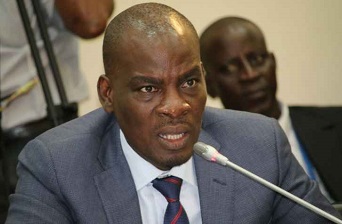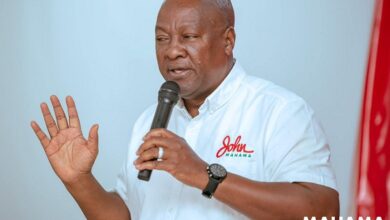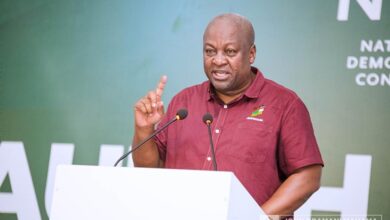
Minority Leader Haruna Iddrisu, 2 others sue AG over E-Levy approval
Minority Leader of Parliament, Haruna Iddrisu, and his colleagues Mahama Ayariga and Samuel Okudzeto Ablakwa, have dragged the Attorney-General to the Supreme Court over the approval of the Electronic Transactions Levy (E-Levy).
They contend that Parliament did not have the required number of at least half of its members present, when the controversial tax policy was approved.
The House on Tuesday approved the policy without the participation of National Democratic Congress (NDC) MPs.
The Tamale South MP and his colleagues want the Supreme Court to declare that the said approval was contrary to law.
They are seeking the following reliefs;
“a. A declaration that on the authority of the Supreme Court case of Justice Abdulai v. Attorney-General, Writ No. J1/07/2022 dated 9th March, 2022, the constitutional quorum number for decision-making and voting within the meaning of Article 104(1) of the 1992 Constitution is 138 Members of Parliament out of the 275 Members of Parliament and not 137 Members of Parliament.
b. A declaration that on a true and proper interpretation of articles 2(1)(b) and 104(1) of the 1992 Constitution of Ghana, there was no quorum to enable the 137 Members of Parliament of the Majority Caucus present in Parliament on 29th March, 2022 to pass the Electronic Transactions Levy (‘’E-Levy’’).
c. A declaration that on a true and proper interpretation of Article 104(1) of the 1992 Constitution of Ghana, the passing of the Electronic Transactions Levy (‘’E-Levy’’) by the 137 Members of Parliament of the Majority Caucus present in Parliament on the 29th March 2022 without the requisite quorum number of 138 Members of Parliament present in Parliament, is null and void and of no legal effect.
d. An order of the Honourable Court setting aside the passing of the Electronic Transactions Levy (‘’E-Levy’’) by the 137 Members of Parliament of the Majority Caucus present in Parliament on the 29th March, 2022 as a nullity.
e. Any other order(s) the Honourable Court may deem fit.”



